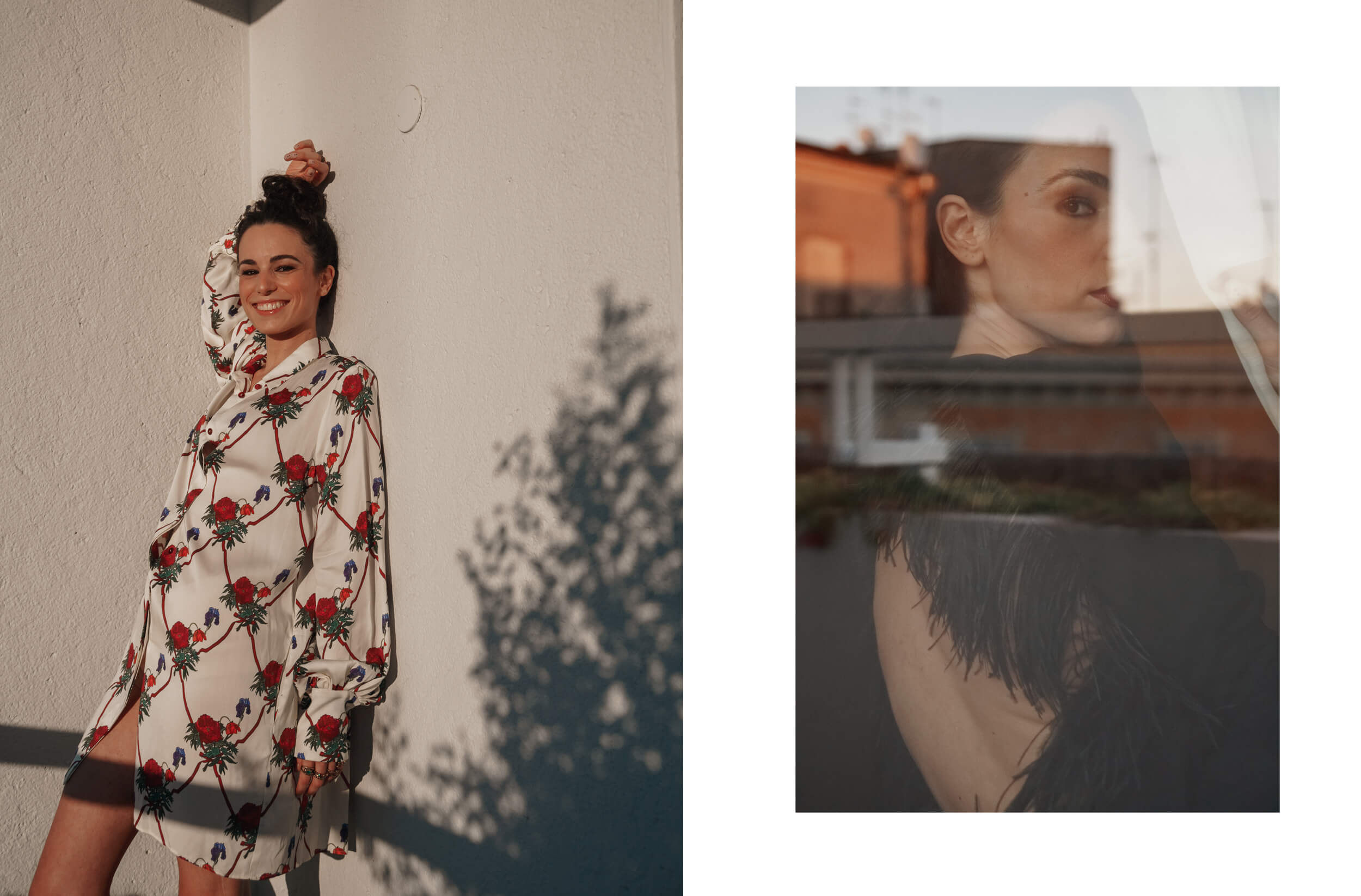What Margherita Laterza tells, and lives every day, is a love story.
What’s your earliest cinema memory?
My earliest cinema memory is no doubt the Sunday film club in the house where I grew up, with my mom making pizza and my dad fobbing us off with absurd movies, from the latest one by Takeshi Kitano to “Battleship Potemkin”…
In 2020 you joined the cast of the TV series “Bella da Morire” by Andrea Molaioli, where you play medical examiner Anita Mancuso. What was your first reaction when you read the script and processed the role you would have played? What was the first question you asked yourself and the director?
Anita is an elf, a character that in Shakespeare’s comedies would have been the “fool,” someone who’s half real and half imagination: to give you an idea, she’s like Ariel in “The Tempest” and Puk in “A Midsummer Night’s Dream.” My first reaction when I read her story in the script was first and foremost enthusiasm, because you don’t always get to play such a complex and non-obvious character, especially on TV, and then I had a feeling of tenderness for this genius but misfit little girl. If I remember well, I asked Andrea Molaioli something about how real Anita’s parallel world was to her, and he answered that Anita doesn’t hear voices, she doesn’t “speak” with the dead, but hers is a form of extreme sensibility that turns into extreme social withdrawal: the clinic is a small safe world where nothing bad can happen because everything has already happened!
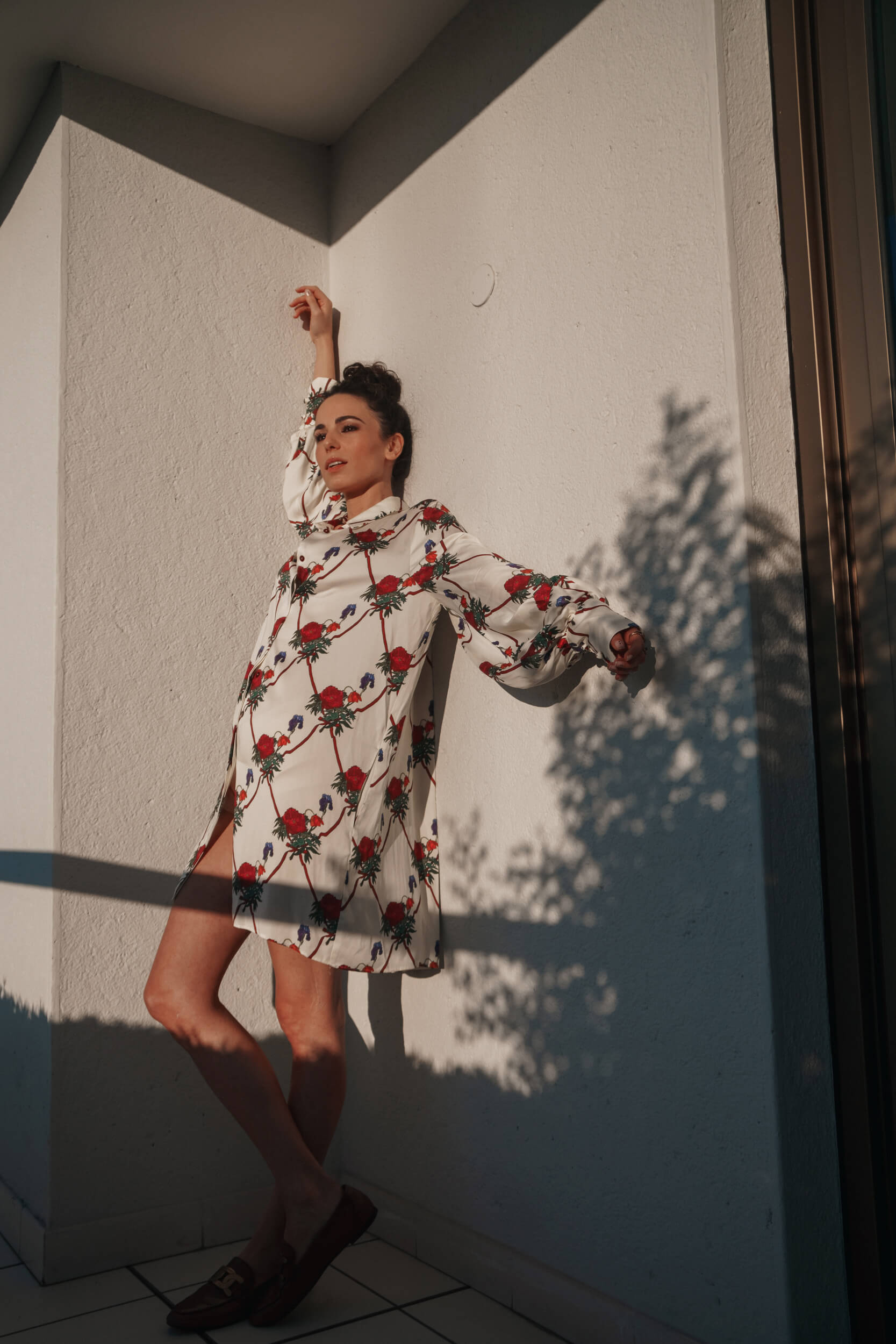
Your character plays a key role alongside the protagonist, detective Eva Cantini, in the investigation of the disappearance of a woman from their hometown. How did you manage to get into a character who’s so far from you and your personal life experience? Do you recognize something of yourself in Anita?
I’ve got to say that I’ve never really felt far from Anita… I turned my own somewhat extreme sensitivity into a job and I chose to show it, while she hides hers from the world and uses it only with the dead. I empathized a lot with her difficulty to come to terms with the ugliness of the world and her desire to give it justice. Before filming, I spent a day in my aunt’s chemical lab in Naples to familiarize myself with test tubes, gloves, and movements within the lab, and then I spent a beautiful afternoon talking with a family friend who’s a pathologist, and I found out, among other things, that years before she had chosen to specialize in that field precisely because, during her medical studies, she had discovered she was too sensitive to see people suffer and die…
In the TV series “Bella da Morire,” the theme of sexism and violence against women both in everyday life and at work is very present. What was it like to take part in a project dealing with such delicate and important topics, in this very moment in history more than ever?
I’m really proud I have joined a production that deals with these kinds of topics. I think it’s the right thing for public services to take on the responsibility of talking about important themes even if they are potentially disturbing for the audience, like femicide, even more, because it’s an issue that hasn’t been solved yet: as of today, we know that during lockdown the cases of violence against women have even increased. “Bella da Morire” is a female-led story all focused on “strong women;” this, as well, is an important step for the emancipation of female actors, of women that see themselves represented on the screen, and, finally, we hope, for all those men watching free, strong, unconventional and, above all, powerful female characters on screen.
How would you describe “Bella da Morire” in one word?
Challenging!
“I think it’s the right thing for public services to take on the responsibility of talking about important themes even if they are potentially disturbing for the audience, like femicide, even more, because it’s an issue that hasn’t been solved yet.”
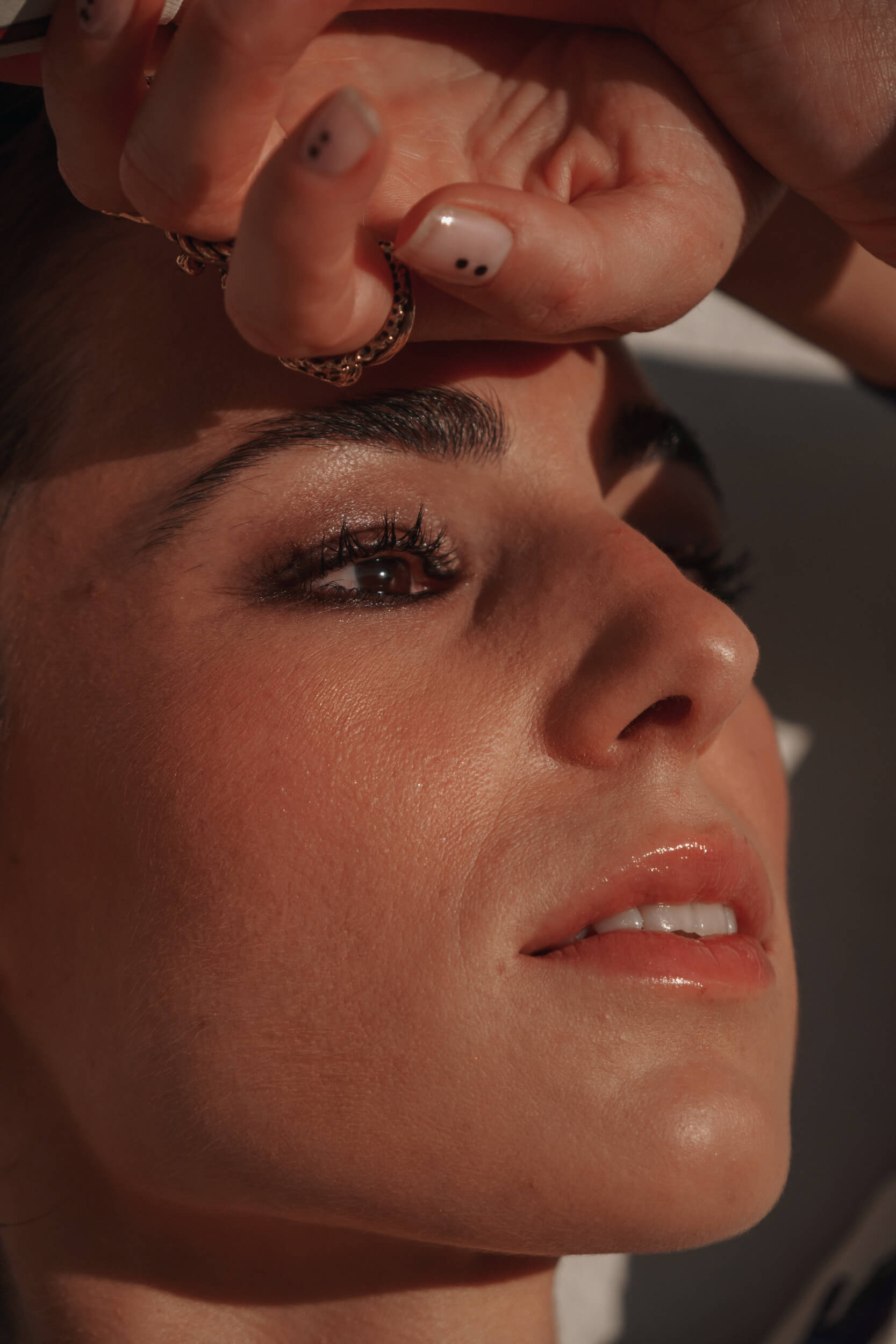
Cinema and television: what changes in your approach to these two different kinds of productions?
Technically, nothing really changes, it’s always all about giving a good acting performance. However, the truth is that, at least in Italy, television has faster production times compared to cinema, so the difference is basically that when you join a television production, you always have to be ready for anything, ready to lean on anything that can be of use for you to give your best in that scene, at that moment because, for as much as you can rehearse, the frantic timings of television productions will probably upset your plans and expectations.
To make a pact of solidarity with your scene partner is much more important in TV than it is in cinema: unlike the production machine, your partner, if they’re a generous actor, will never betray you. Obviously, mine is a generalization that has some exceptions, and then, luckily, things are changing and even Italian TV series are starting to get the attention they deserve. I will absolutely never forget my experience on the international set of “The Borgias” a few years ago, it looked like a whole new world to me, back then.
You’re an all-around actor: we had a chance to see you perform not only on the big and small screen but also in several stage productions. Which world was your first love?
I don’t know what my first love was. I went to an acting school and I started working professionally on the screen, but it’s also true that when I’m on stage, I feel a strong bond between that kind of feeling and the one I used to feel as a child when I put up my first “plays” and my first “games with the audience.” The theater has a transforming power that cinema doesn’t have, on stage you can really become who and what you want to be, and this answers a motivation I’ve had inside ever since I was a child, I guess. When I’m on stage, I almost feel like I’m back home, in my fantasy world. Moreover, it’s more likely that theater gets to gather powerful energies (that in real life I sometimes don’t know where to put!) and that it gives them back to you in return… It would be hard for me to act in a movie and get to feel what I felt while singing in the cavea of the Auditorium, or while acting on the stage of the Theater Argentina in Rome.
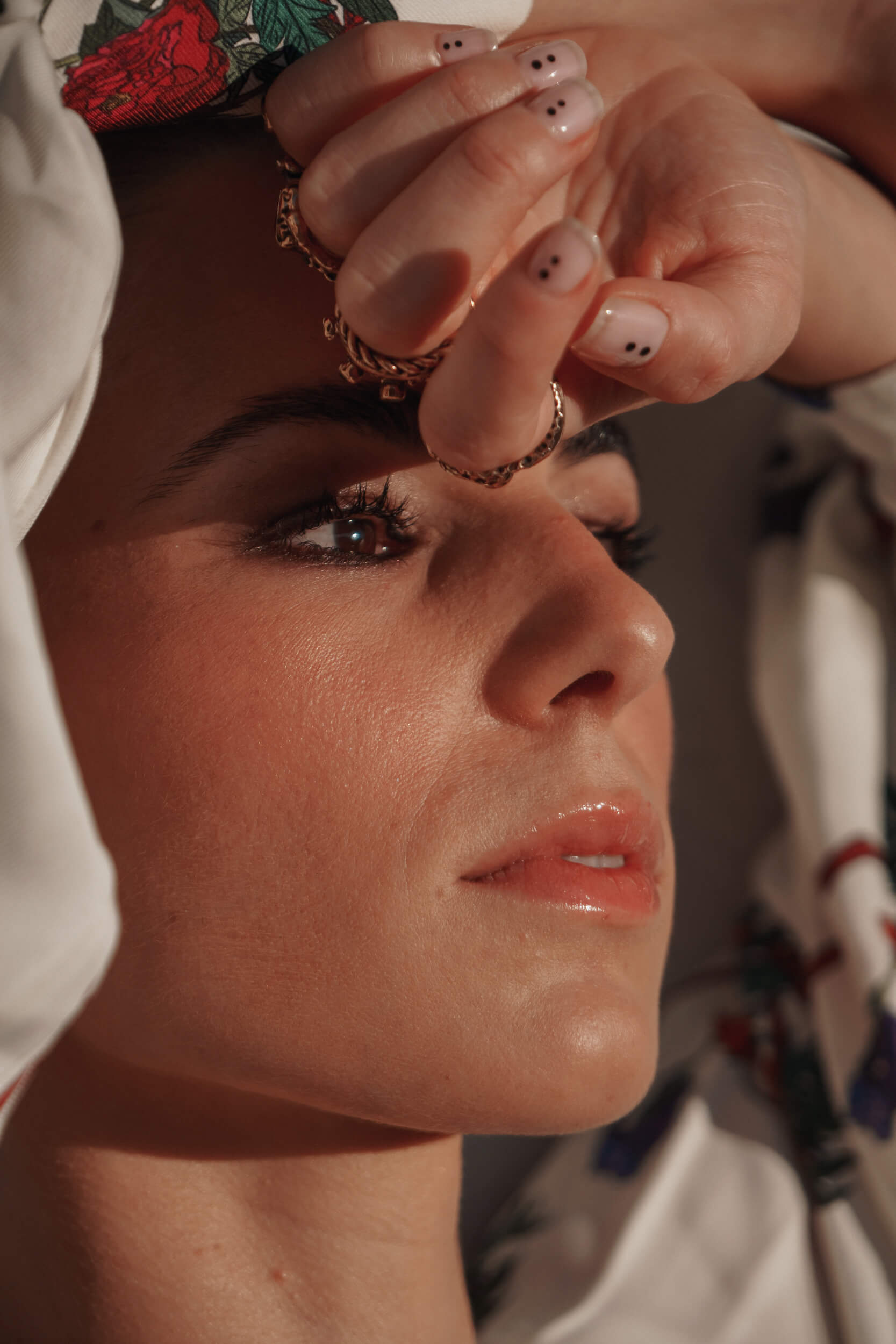
“The theater has a transforming power that cinema doesn’t have, on stage you can really become who and what you want to be, and this answers a motivation I’ve had inside ever since I was a child.“
Music is another huge passion of yours: how is your relationship with that world growing and evolving?
Music… I think it’s an addiction I will never be able to recover from! In my last show (“Mystery Train”) I sang next to extremely talented Gabriele Amalfitano. Ever since then, he – who’s a good friend of mine now – won’t stop telling me I should be a singer. Right now, I’m writing my own songs, it is a project that has to do with my Neapolitan origins. I really like the relationship that exists between popular music and electronic music: the repetitiveness, the passion, and the lyricism… let’s see what I come up with.
What’s a song to describe this very moment in your life?
I listen to an embarrassing amount of music every day, this question is the hardest one! So, I’ll answer “La Danse de Daphnis” by Pavane because there’s the wait, the joy of life, the melancholy, and the awareness in it.
3 songs that can’t miss from your playlist.
I’ll name 3 songs that can’t miss from my playlist RIGHT NOW (otherwise I’d go crazy): “Ashiko” by Clap Clap, “A Case of You” by Joni Mitchell, “Ogni Pensiero Vola” by Venerus… and then Billy Holiday always, all life long, for every occasion.
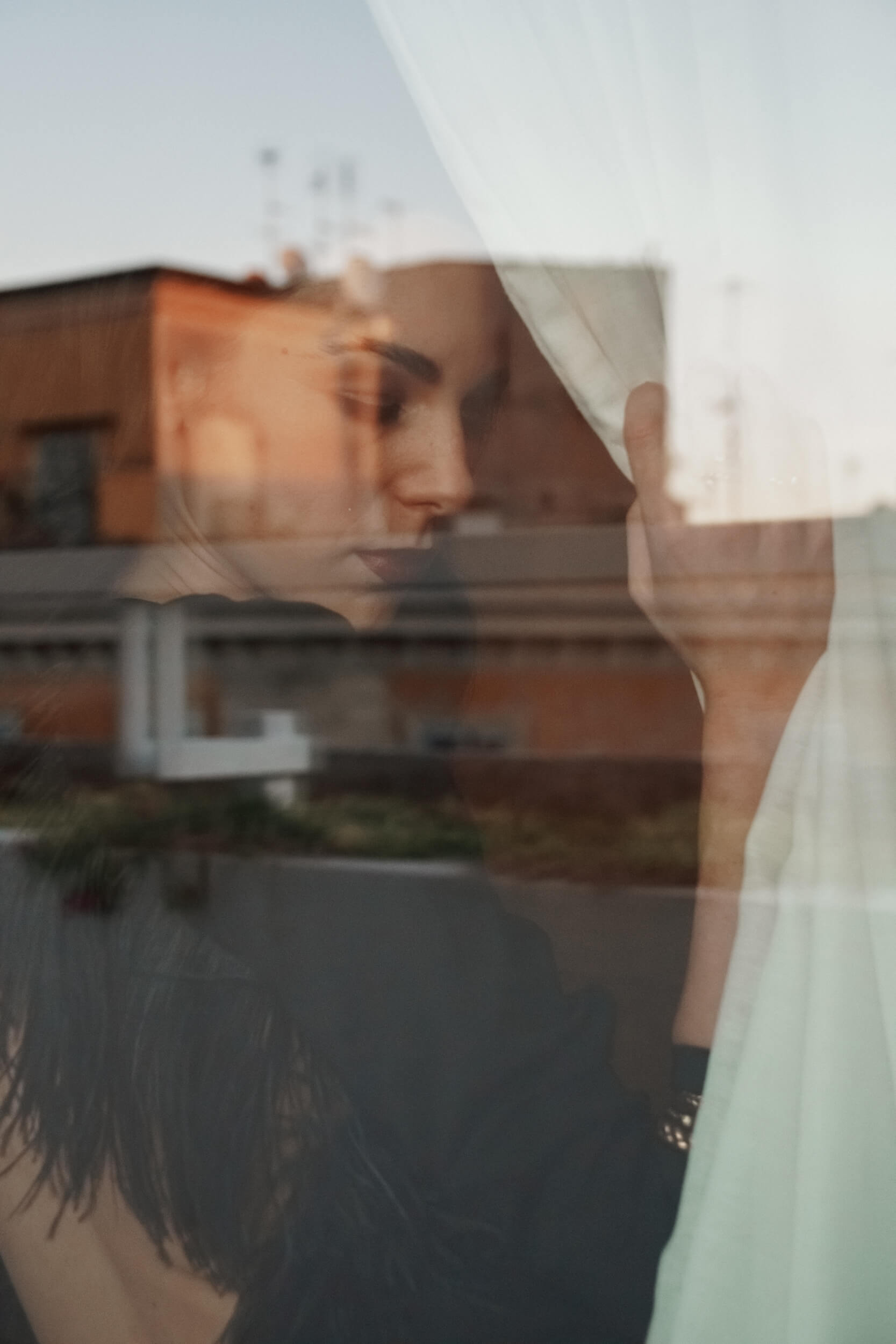
You’re an activist and advocate for the movement for climate and environmental justice Fridayforfuture: what is your contribution to the cause? Do you have any new initiatives in-store?
With the young girls and boys from Fridayforfuture – Rome we’re planning a show that is going to tell the story of Rachel Carson, Vandana Shiva, and Wangari Maathai, three women (from America, India, and Africa) who devoted their lives to the fight against climate change and have incredible life stories, each in its own way. During the first quarantine, I had the feeling that I NEEDED to do something; Covid to me (and to many other people, I think) was the definitive wake-up call. If we don’t start reversing the trend right now, not only we will steal the future from our grandchildren forever, but also during the time we spend on Earth, this virus will be only the first in a series. Viruses have increased exponentially between the 1940s and today, that is the time of the so-called “green revolution:” when we deforest to install crops or intensive farming, we kill those species that act as a “pillow” between us and the virus, protecting us from them. Covid is the symptom of a much more severe illness that we really can’t ignore anymore.
What’s the latest series you’ve binge-watched?
“The Queen’s Gambit” and “Sanpa.”
What stories do you dream to tell?
I dream to tell the story of my family from Capri, whose life was upset by the woman I’ve been named after, Margherita Bielshowskj, a Jewish German escaping from Nazi Germany who landed in Capri between the two World Wars when the island was a refugee for Jewish people, intellectuals, homosexuals, political dissidents. It’s an incredible story on which I’ve been working for years with Pierpaolo Verga, and I hope I can soon tell it to the world.
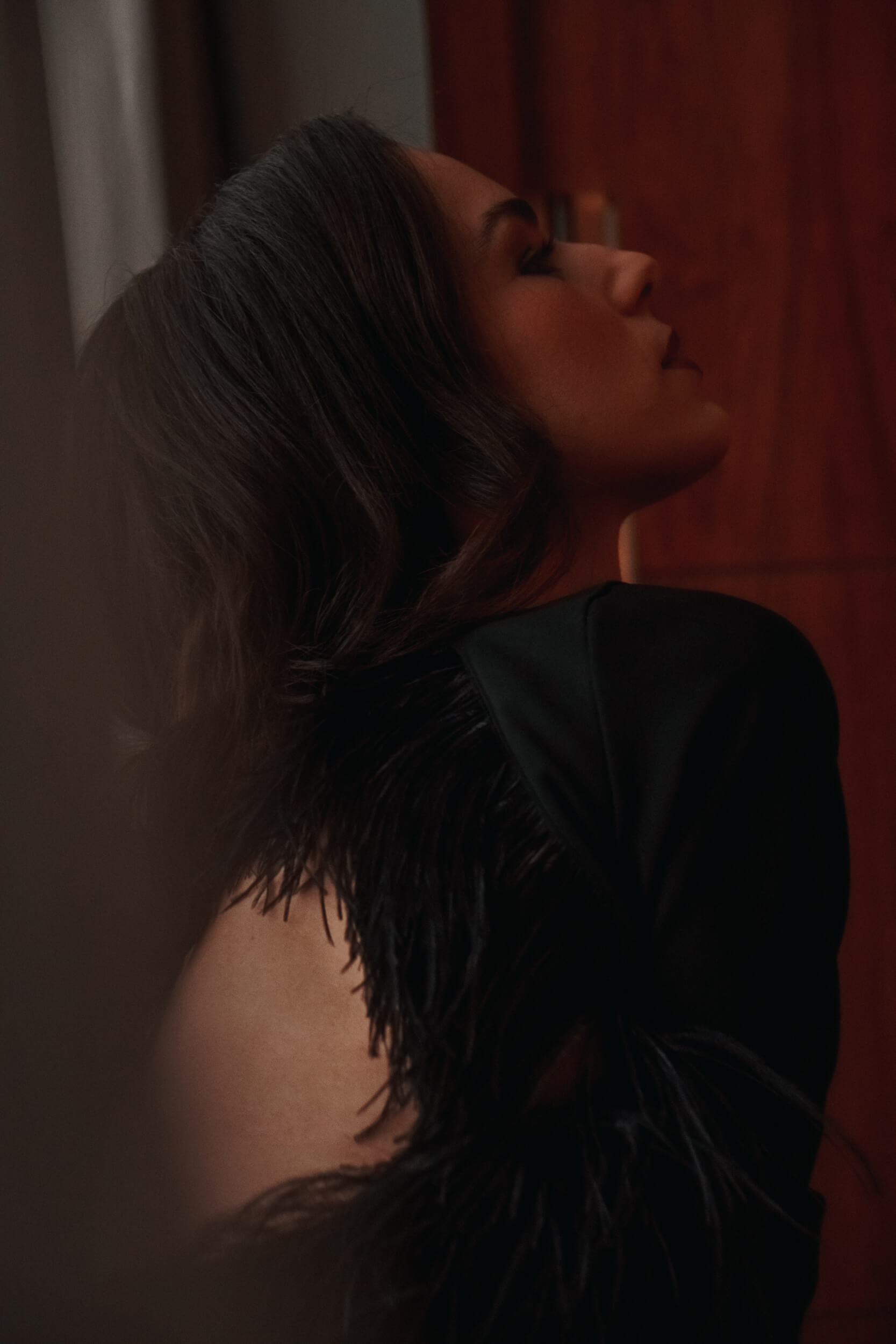
“If we don’t start reversing the trend right now, not only we will steal the future from our grandchildren forever, but also during the time we spend on Earth, this virus will be only the first in a series.”
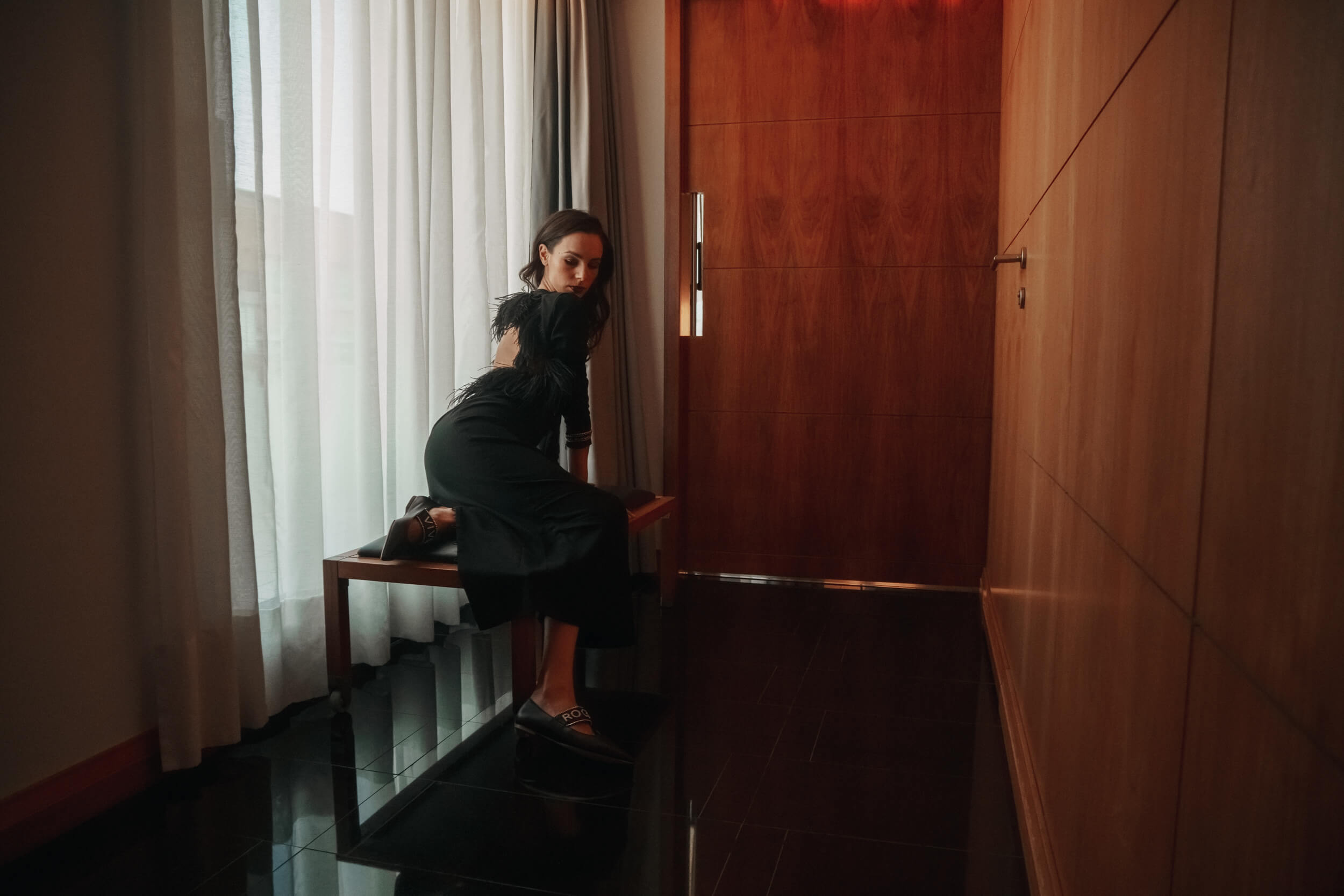
What’s the latest thing you’ve discovered about yourself?
That I can get very angry! That in front of certain misbehaviors that I’ve taken more or less silently so far, due to a lack of means, I have now learned to defend myself. And it’s a great discovery… especially for a woman: way too often women are used to being condescending even in front of unbearable situations, but that’s wrong, we must have the possibility to get angry when necessary, exactly like men do.
What does “feeling comfortable in your own skin” mean to you?
I feel comfortable in my own skin when I can fit in my own image of myself the beauty and the ugliness, the lights and the shadows together. When I remember that the most fascinating things are those that attract and reject us at the same time, not the things that are perfect (that don’t even exist, by the way).
What’s your must-have on set?
Serenity is the only thing I would never want to run out of onset, I don’t have any material needs. But, if I don’t have that, it’s impossible for me not to affect and turn the scene into (more or less) whatever emotional state I’m in that moment. Hiding it doesn’t work for me, in my experience, it’s useless and harmful, it’s all pent-up energy. What a complicated job I do, don’t I?
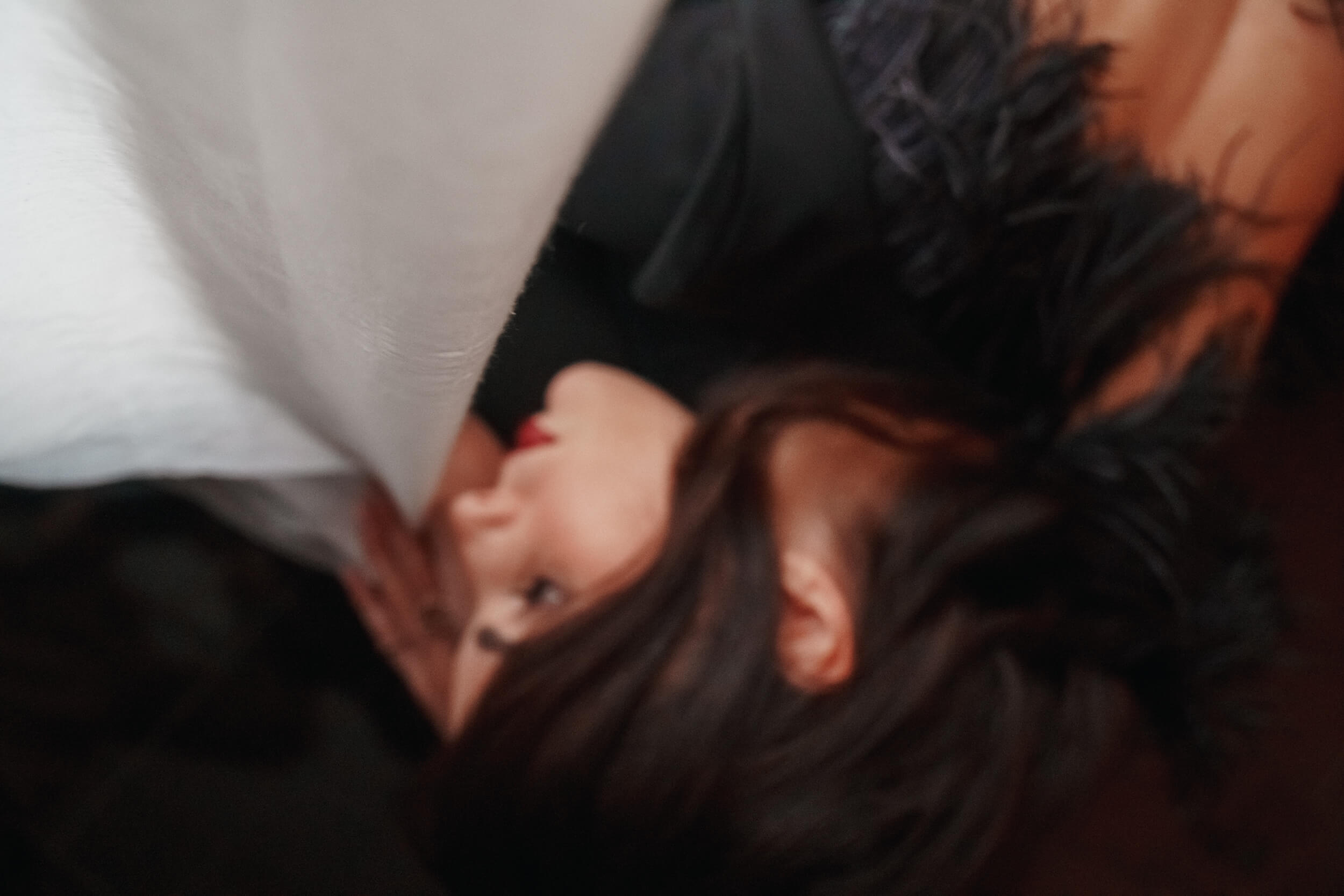
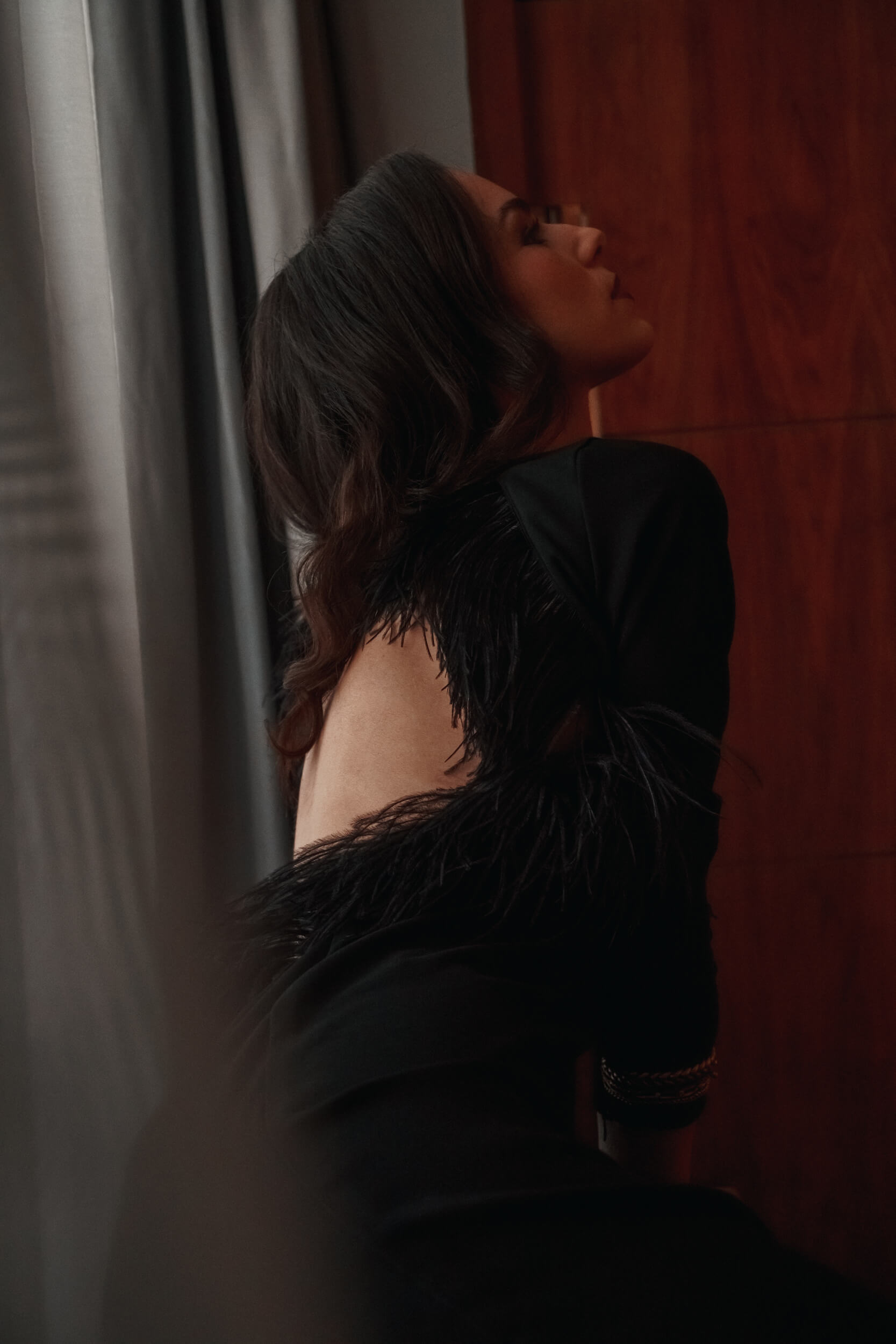
An epic fail on set?
The epic fail of the epic fails was what happened on the set of “Il terzo tempo” by Enrico Artale. Rugby field, last scene of the movie. My job was to run fast after a small mark on the camera, wading through the rugby players to reach my scene partner (Lorenzo Richelmy) in the middle of the field. At some point, Lorenzo would have taken the place of the small, pink mark and we would have had to kiss passionately. In the first take of this amazing long shot, I ran after the above-mentioned mark with such dedication that not only I waded my way through the rugby players as if I had been one of them, but once I reached Lorenzo, I dodged him as well and kept following the mark unperturbed! I can still recall the face of the assistant director pointing at Lorenzo behind me…
You’re scared of…?
I’m scared of failure. I’m not free from the disease of our times. But I’m working on it. We live in a society that tells us that if we don’t achieve certain goals (that perhaps aren’t even our personal goals), we’re no one, that “doing” is everything while “being” is nothing. We’re bombarded by pre-packaged patterns of success, beauty, strength. It’s all fake. Nothing of what our consumer society and now social media sell us has the power to show us the way to happiness, they can only show us the way to the anxiety of not being enough, which I think affects everyone, no matter how many followers you have. I always try and hold onto the most beautiful feelings in my life and remember that they never have anything to do with meeting other people’s expectations or feeling better than them, but always with feeling connected with others and feeling loved with all my weaknesses.
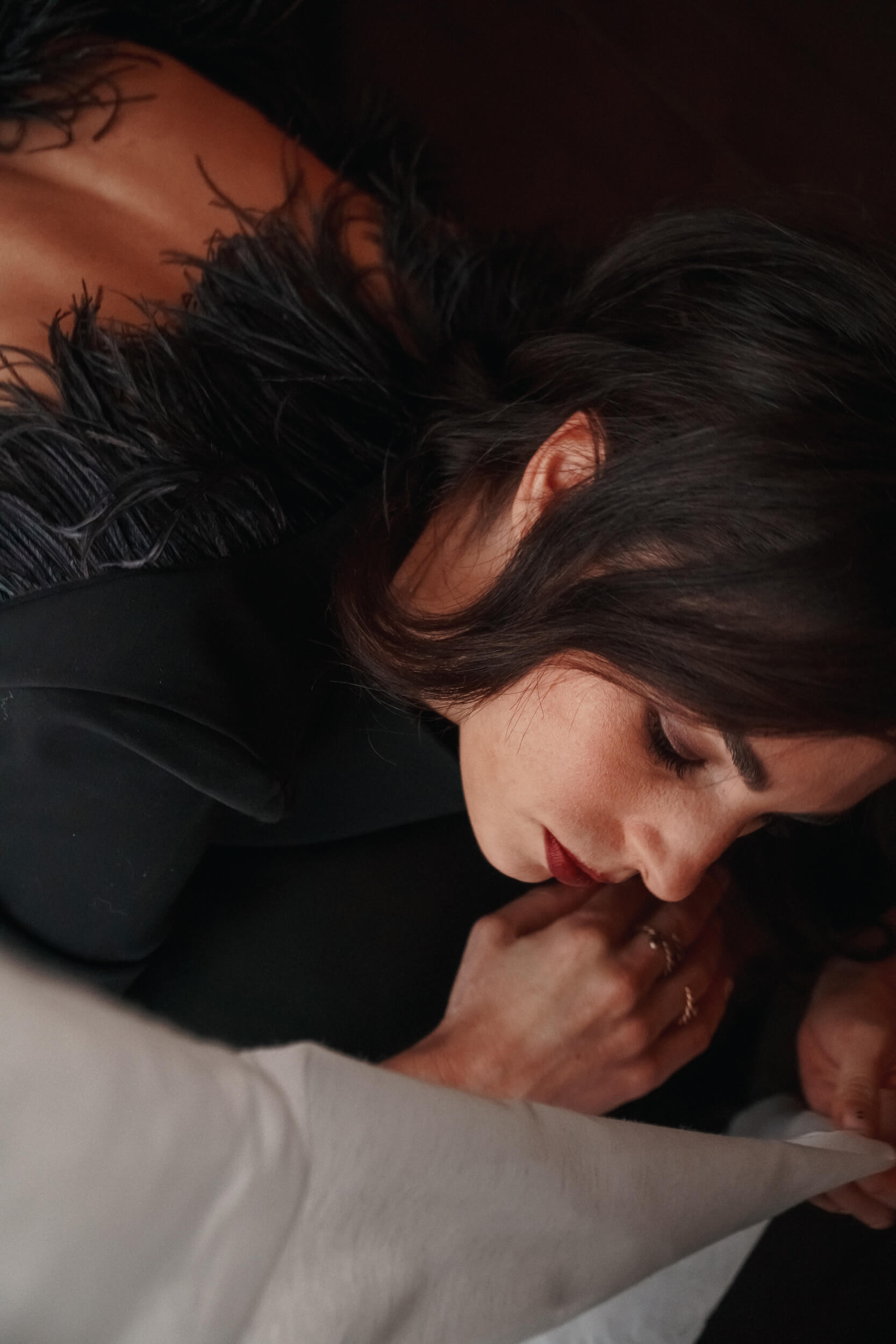
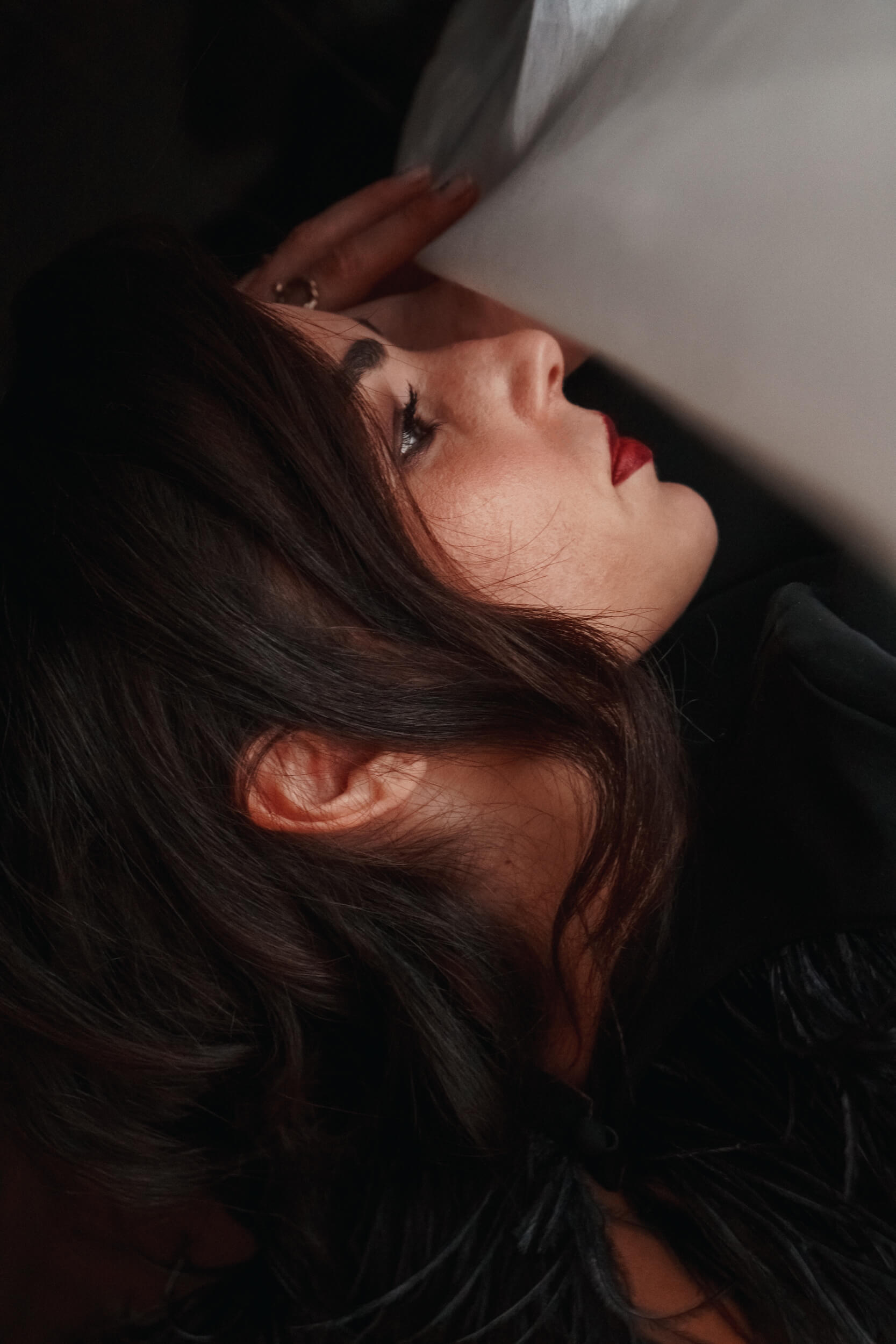
“Nothing of what our consumer society and now social media sell us has the power to show us the way to happiness, they can only show us the way to the anxiety of not being enough, which I think affects everyone, no matter how many followers you have.”
What’s the latest lie you’ve told?
I have never told any lie in my life. There you have it.
Who’s the movie character you would want to be friends with?
Groucho Marx. I’d pay all my money for a night out with him.
What’s the first DVD you bought?
Maybe, “The Motorcycle Diaries,” that I bought together with the book. Or at least that’s the first DVD I remember buying. Furthermore, I had completely fallen in love with Gael Garcia Bernal.
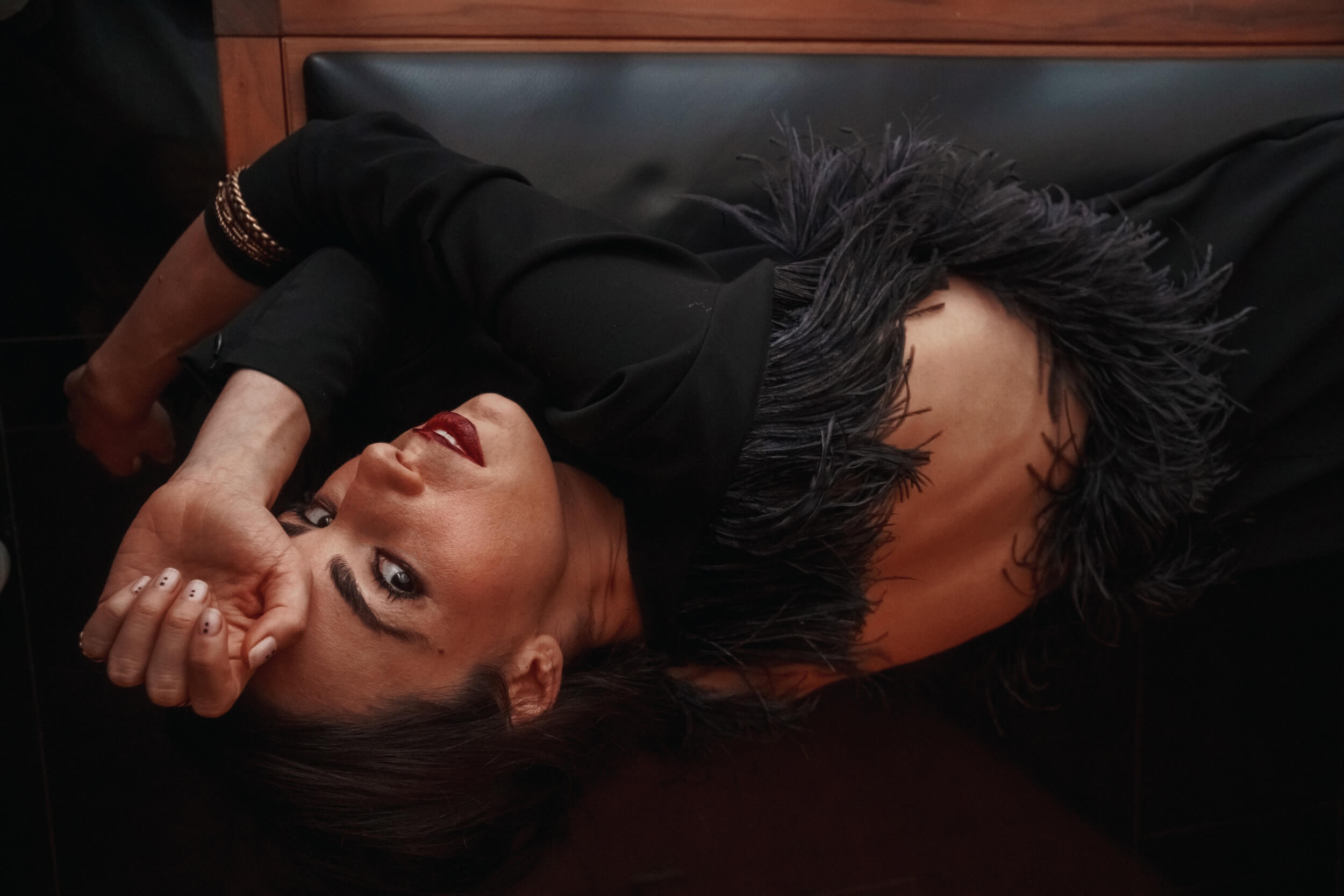
What’s the bravest thing you’ve ever done?
I think it was deciding to go right when in front of a junction of a path in the middle of the jungle; this was several years ago, in Nepal, when my friend Gioia and I lost our tour guide and our way. We went right, crossed a small, rickety wooden bridge like one of those in “Indiana Jones,” and once we got to the other side, where luckily there was our guide, we kicked their ass for having left us alone in the middle of nowhere (actually, I don’t know if they understood a word of what I told them). Generally speaking, that journey – which began with some trekking 3000 meters high in Mustang, interspersed with some walking on foot through an area unexpectedly hit by monsoons which led us to Katmandu – was a severe test of my courage also because my friend (don’t hate me for this, Gioia, you know I love you) was quite often panicking for the numerous life-threatening situations we got into along our way, and for some reason, I happened to be the “brave” one. On the other hand, actors have many flaws (many, many flaws, indeed), but they hardly ever are cowards. Being an actor is an act of bravery in itself, and this is not rhetoric: it takes guts to constantly expose yourself to other people’s judgment.
What’s your happy place?
Capri, for sure. I have almost all my best memories down there. And most of those with my grandma from Capri, who was my very first big love. If I take a man home with me in Capri, it means that I’m really in love.
What can you unveil to us about your future projects?
I’ve joined two great Rai productions, but I was told not to say anything more… In addition to that, there’s an upcoming short film by Paolo Mannarino which I haven’t seen yet, but I’m very curious about: it’s the first time I work with my friend Edoardo Purgatori (whom I admire very much), and in this short movie I dance a crazy dance for which I took inspiration from my years of African dance and ballet lessons… and with the help of my beloved teacher Silvia Perelli from the Centro Sperimentale. Lastly, I have some more theater projects in store. I really hope that theaters and cinemas open again soon: we need to collectively process all the things that are happening to us.
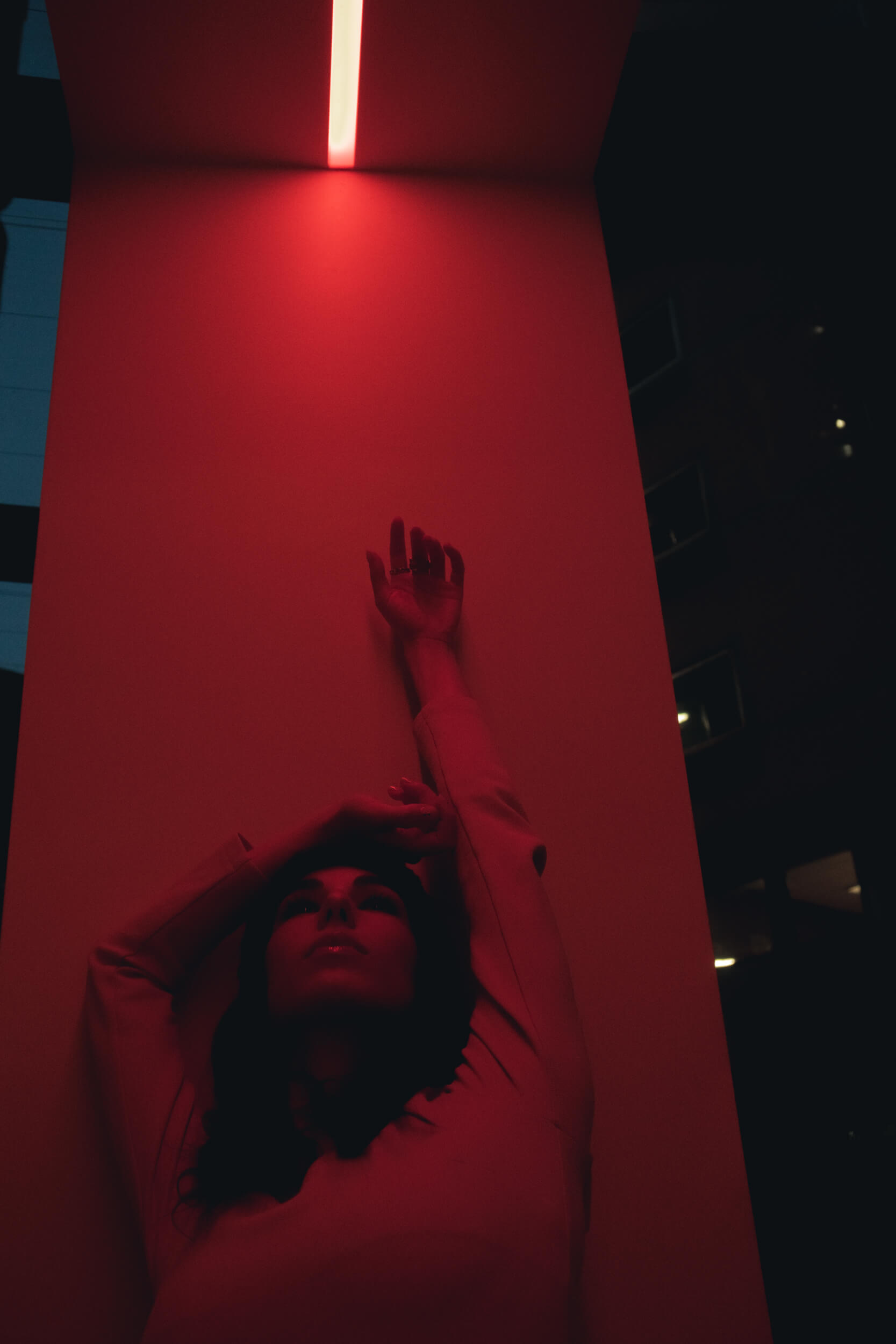
“Being an actor is an act of bravery in itself, and this is not rhetoric: it takes guts to constantly expose yourself to other people’s judgment.”
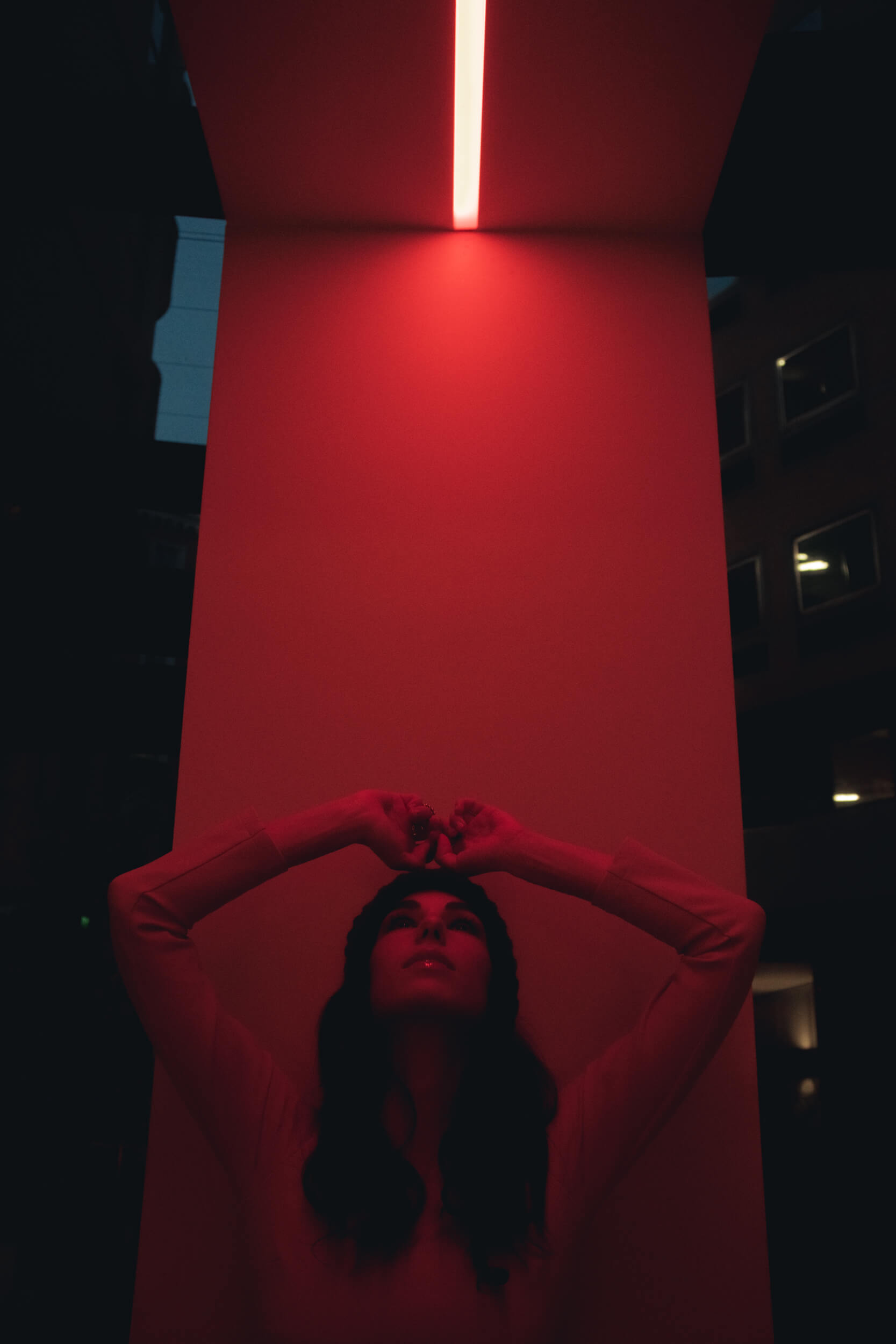
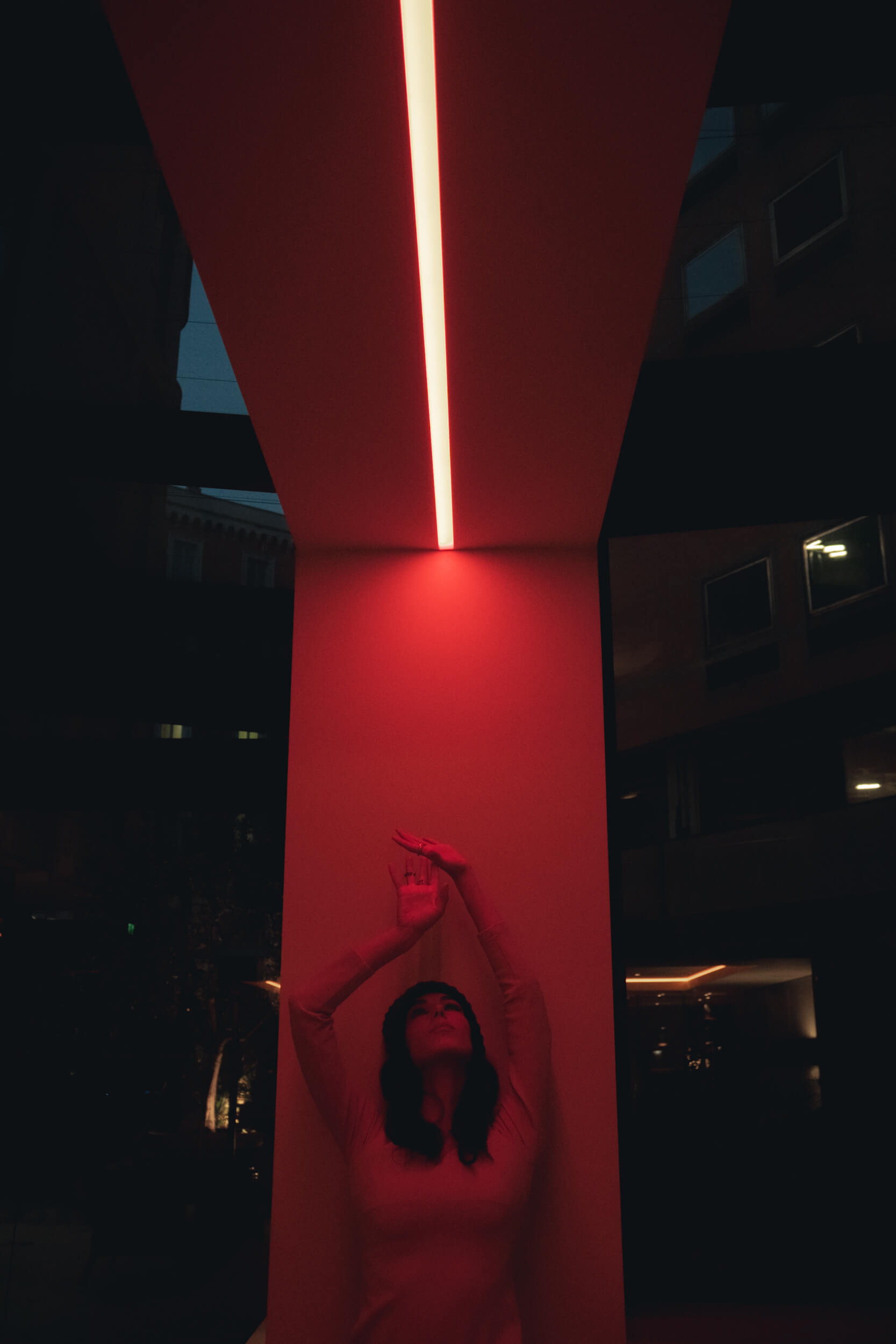
Photos by Johnny Carrano.
Thanks to Other Srl.
Makeup by Chantal Ciaffardini.
Styling by Sara Castelli Gattinara.
Location Manager Luisa Berio.
Location Le Méridien Visconti Rome.
LOOK 1
Chemisier Dress: Edoardo Gallorini
Rings: Flaminia Barosini
Shoes: TOD’S
LOOK 2
Dress: Edoardo Gallorini
Shoes: Roger Vivier
Jewels: Flaminia Barosini
LOOK 3
Dress: Edoardo Gallorini
Jewels: Flaminia Barosini
Hat: 11/20

